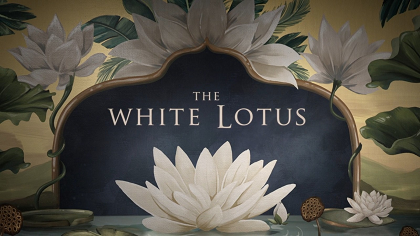By Panagiota Katsaveli,
Going to a tropical destination to relax with your loved ones seems like an ideal scenario, doesn’t it? It might be, but this is not what Mike White had in mind with his new series. From the very beginning of human existence, people have been divided into categories depending on different criteria that affect the trajectory of their lives; one of the most distinct ones is related to money and status. Higher and lower class, the rich and the poor, or whatever term is used to describe the two ends of the spectrum the situation remains the same which means that the former continues to rule and take advantage of the latter while they are irreparably affected by their actions. This unequal relationship, among other issues, is extensively explored in the social satire series called The White Lotus.
The White Lotus is an American television series that premiered on July 2021 the network HBO. The series, both written and produced by Mike White, could be characterized as a satirical drama-comedy, most importantly a social satire and the filming of the series took place in Hawaii. The cast is comprised of many amazingly talented actors with varying degrees of experience, including Murray Bartlett, Connie Britton, Jennifer Coolidge, Alexandra Daddario, Jake Lacy, Natasha Rothwell, and Steve Zahn. The story unfolds in the span of 6 episodes showcasing the life of the guests and staff of a resort, The White Lotus, on the tropical island for a full week. The series was received such positive feedback from viewers and critics alike that its network decided upon its renewal shortly after its release, with the second season being located at a different White Lotus property.

As it has already been stated, the story involves the lives of the guests and staff of a tropical resort in Hawaii during a week-long period. The rich guests of this tropical paradise arrive on the island to relax and rejuvenate from their stressful existences at home, but not long after they arrive, they realize the impossibility of their goal. As the episodes and story progress, a darker more complex reality emerges in these picture-perfect travelers, the cheerful employees, and the place itself. The first episode starts ominously with a coffin, making the viewers hanging to learn in the final installment the outcome and the person who lost their life. The interactions between all these unique personalities create an interesting, catastrophic mosaic, and thus it becomes the central point of the plot and the ending. In the end, we could say that everything stays the same, no matter the complaints, efforts, or desires to get out of their cells; only one person in the story manages to find a way to escape, but even in his case, he has the chance to do so because of his privileged position.
Now would be the best time to take a better look at the core meaning behind the narrative, don’t you agree? Well… a mystery fatality lays at the heart of the miniseries, but the main focus is placed on the effects and monstrousness of affluence. The story focuses on matters of inequality, corruption, and suffering, no matter how major or minor they might appear. From the very beginning, the lower status and importance of the staff (in the minds of the rich elite guests at least) is evident. The hotel manager, Armond, dictates his staff to dismiss their selves and simply be disposable tools for the satisfaction of every desire the rich travelers have. The power structures that shape our world so fundamentally as to become part of the background are increasingly revealed. The staff is used in every way possible for the satisfaction of the guests without even taking a second to consider their needs or limits.

Let’s put the different issues that are meant to make viewers uncomfortable under the microscope and look at them one by one. The power dynamic between Tanya and Linda seems to be the imbalanced dynamic between the black and white characters we are used to. Not only is there an imbalance of client vs staff members, but also one is a white rich woman, while the other is a black lower-class woman who cannot be free of the former since money has been used in a manipulative way to control her. Nicole, a powerful female CEO and part of the Mossbacher family, presents ideas that stress the white privilege of her son in front of a non-white teen, her daughter’s friend, thus making her and us feel uncomfortable. Moreover, Shane comes from a wealthy background and has been raised to believe that his money can bring him everything. He wants to show how powerful his position is, and he will not stop until he gets what he wants, even if he is close to losing everything in the process. He will not stop bothering the manager utilizing all the means available to him to get his way. It might seem difficult to believe that none of the characters are completely evil, even though that is the purpose of the story; the goal is to construct personas that are relatable and bad at the same time to make it difficult for the audience to judge them.
After everything we have already mentioned in this analysis, it is easily understood that class division and inequality constitute a lasting condition through different times and generations. No matter how hard the members of the rest of the social ladder close in on the higher class, the people on the top of the pyramid will stay unattainable and unaffected. Not only do the rich remain powerful and steadily unshakeable, but they also have the chance to destroy the poor, take advantage of them when they are found in a vulnerable state, or force them to constantly be at their mercy without the slightest chance of escaping. This dark reality is depicted in The White Lotus in a clever twisted way and we can only anticipate with excitement the next installment of the series filled with different storylines and personalities!
References
The Guardian, The White Lotus review – a magnificently monstrous look at how the other half lives. Available here.
Rogerebert, The White Lotus. Available here.




